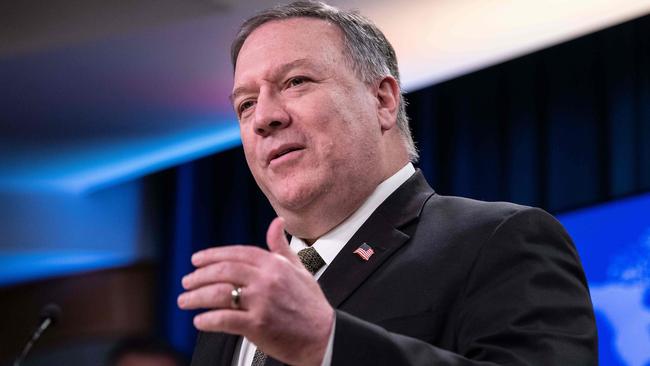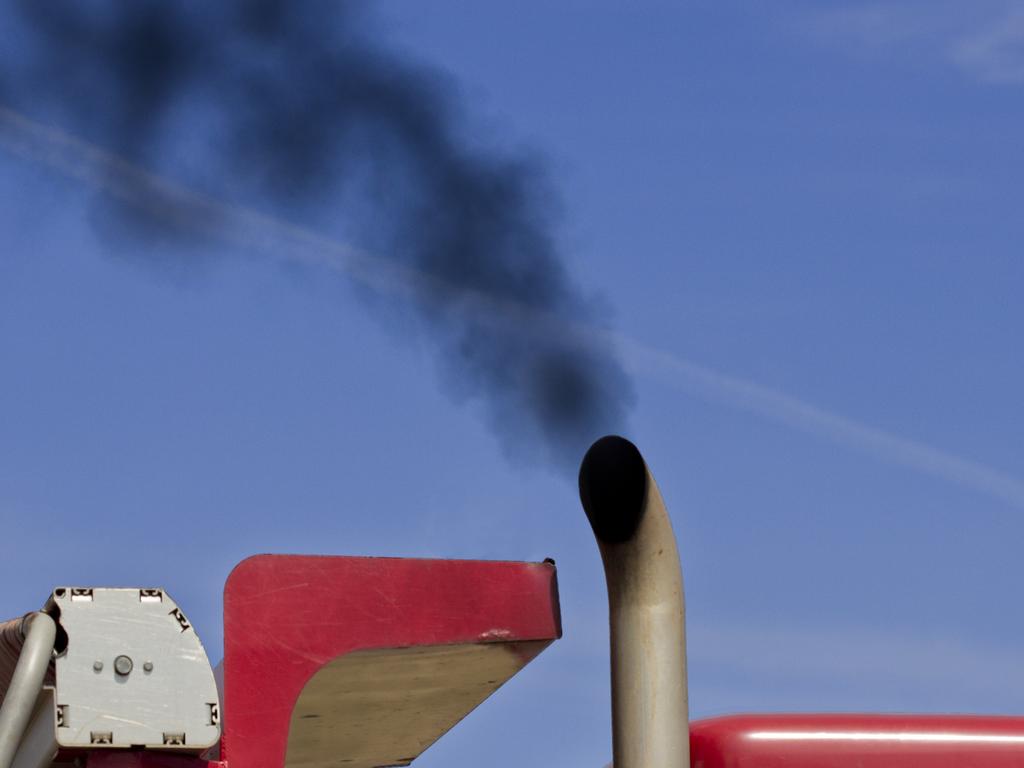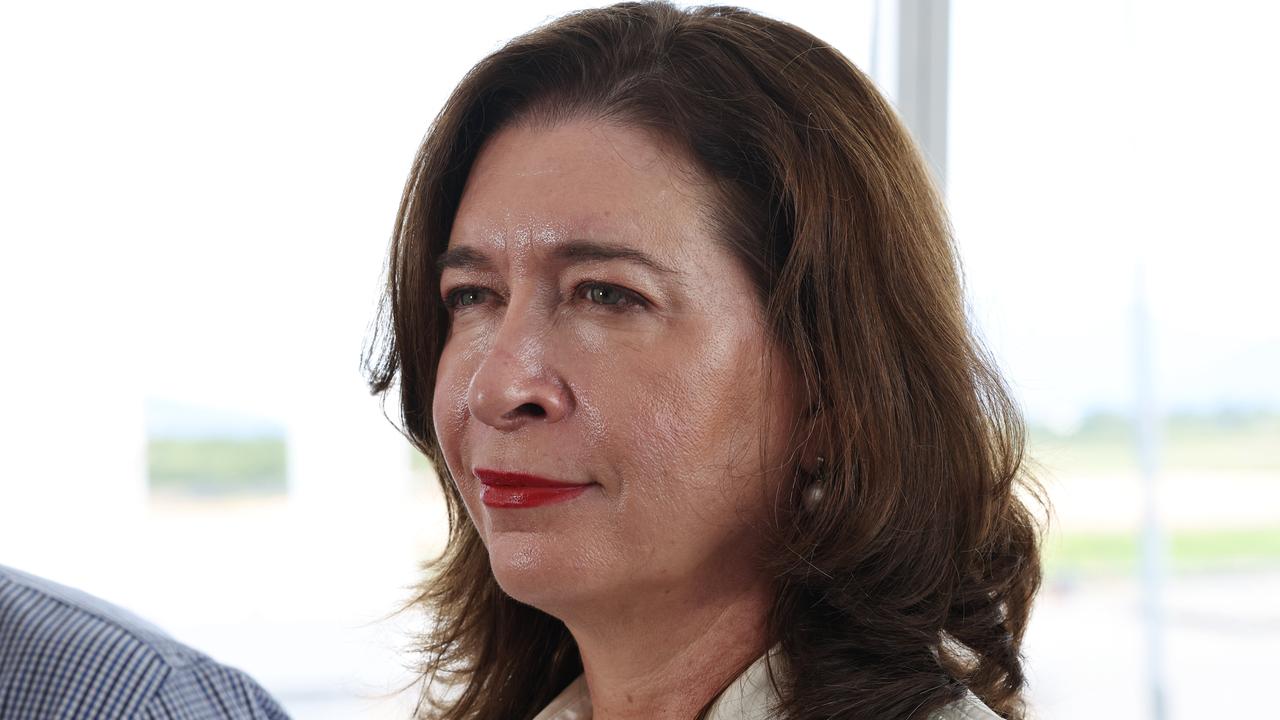Coronavirus: US says it has Australia’s back, but Kerry Stokes and Andrew Forrest don’t
Mike Pompeo backs PM’s push for inquiry into origins of virus as Kerry Stokes, Andrew Forrest move to appease China.

US Secretary of State Mike Pompeo has backed Scott Morrison’s push for an inquiry into the origins of the coronavirus and urged Washington’s partners to support the initiative, as he criticised China for threatening economic retaliation against Australia.
The endorsement came as billionaires Kerry Stokes and Andrew Forrest were warned by security chiefs and concerned MPs not to confuse their commercial interests with the national interest, after they urged the Prime Minister to drop his push for a review.
West Australian Premier Mark McGowan also urged Australia and China to keep their cool amid growing tensions between the two nations, saying it was time to “calm down a little bit, work co-operatively … and ensure that we continue to have an economy when this is over”.
Mr Pompeo said all countries should join Australia’s call to obtain answers from China about how the pandemic was triggered, after it wreaked a path of death across the world and hobbled the global economy.
“I saw comments from the Chinese foreign ministry talking about coercive activity with respect to Australia, which had the temerity to ask for an investigation,” Mr Pompeo said in Washington. “Who in the world wouldn’t want an investigation of how this happened to the world?
“We would urge every country, all of our partners, to demand that we get answers for what happened here, but also that … the world gets the transparency it needs.”
Mr Stokes, a media magnate with investments in China, used the front page of The West Australian newspaper — published by Seven West Media, of which he is the chairman — to urge the federal government on Thursday to hold off on any inquiry into the origins of COVID-19 until after the US election in November.
He also questioned Mr Morrison’s push for the World Health Organisation to crack down on wet markets and urged the government to overturn its ban on Chinese telecommunications company Huawei participating in Australia’s 5G network.
“I think it (5G) is potentially the answer to (Australian) download speeds, (but) it’s no good rolling out dud 5G technology. We need to have the very latest and best 5G technology, and I don’t think you can end up with the best 5G technology unless Huawei is in the mix,” Mr Stokes said.
Australian Strategic Policy Institute executive director Peter Jennings told The Australian the business community needed to understand it did not have the same information as the Morrison government about Chinese cyber interference, intelligence gathering and military activity.
“There is actually a difference between their business interest and the national interest,” Mr Jennings said. “For business leaders to simply say, ‘this is ridiculous, let’s get back to an environment where we can make money’, is just failing to take account of the fundamental national security responsibility that government has.”
Former spy boss Dennis Richardson said the suggestion this week by Chinese ambassador Cheng Jingye that the coronavirus did not necessarily originate from within China was “something out of 1984 or Brave New World”.
He characterised the decision by WA mining magnate Mr Forrest to have China’s consul-general for Victoria, Long Zhou, gatecrash a ministerial press conference with Health Minister Greg Hunt on Wednesday as a “stunt”.
Mr Richardson — a former ambassador to the US who has also headed up the departments of Defence and Foreign Affairs and Trade — acknowledged that business leaders running Beijing’s line in opposing a global probe into the origins of the COVID-19 pandemic could “potentially” undercut Australia’s foreign policy.
“I think Mr Forrest does as a superb job with his business interests — and that serves Australian interests — but I don’t think people look to him in terms of direction in respect of foreign policy,” Mr Richardson told Sky News.
WA Liberal MP Andrew Hastie, a former SAS captain and chairman of the parliamentary joint committee on intelligence and security, urged business leaders not to make engagement with China conditional on Australian acquiescence to its demands.
“No one is opposed to trade or Australian prosperity; that’s a lazy straw man designed to silence us,’’ Mr Hastie told The Australian.
“The truth is that we aren’t dealing with a true peer in the Chinese Communist Party. They don’t play by the rules and we are mugs if we think they do.
“So we ask our business leaders to trade from a position of strength that builds Australian sovereignty, rather than a position of weakness where we throw our silence and freedom of action into the bargain. That is the true road to serfdom in a new world order.”
WA is the world’s biggest producer of iron ore, with the likes of BHP, Rio Tinto and Mr Forrest’s Fortescue Metals Group sending hundreds of millions of tonnes of the commodity from the Pilbara to China each year. Mr McGowan said while it was important the world got to the bottom of what caused the coronavirus outbreak, the ability of the economy to recover from the pandemic would rely heavily on good relationships with major international trading partners such as China.
“Our trade keeps the national income alive and our company tax revenues keep the federal budget alive,’’ the Premier said. “The country would be in severe trouble but for Western Australia. We perhaps understand trade with other countries better than they do in Melbourne, Sydney, Canberra or other parts of the country.’’
Labor MP Anthony Byrne, the deputy chairman of the PJCIS, highlighted Mr Forrest’s failure to call out China on the detention of ethnic Muslims in Xinjiang. “There seems to be an inconsistency between Mr Forrest’s arguments against modern slavery and his failure to say anything about the detention of a million Uighurs because of their religious faith,” he said. “I wouldn’t take my national security advice from those whose income is dependent on the regime they are arguing for.”
Labor senator Kimberley Kitching said it should “not be a controversial proposition” that the national interests of Australia and China did not always align.
“If Mr Stokes or Mr Forrest are going to advocate foreign policy positions that sound very similar to those pushed by foreign governments, they need to be mindful of the Foreign Influence Transparency laws,” she warned.
“Mr Stokes’s media empire relies on free speech being upheld — a principle that is not respected by the government he is warning against offending.”






